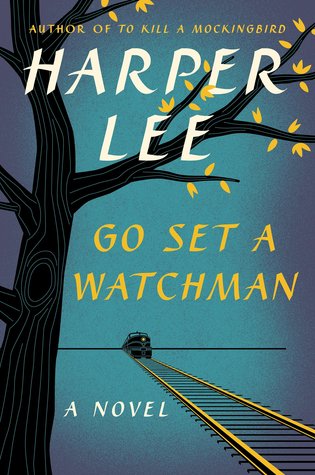 After capturing the hearts of readers with her landmark debut 1960-masterpiece, To Kill a Mockingbird, Pulitzer Prize-winning
author Harper Lee returns with her second and highly controversial book after a
gap of fifty-five years much to the delight of Mockingbird fans, and
the consternation and skepticism of some. If To Kill a Mockingbird was a book
about a racially-inflamed rape trial in Alabama narrated by a young girl named
Jean Louise Finch, nicknamed Scout, then Harper Lee’s much-anticipated
second book is much more than that – an agonizingly painful yet tender story of
growth and maturing, for good or for bad.
After capturing the hearts of readers with her landmark debut 1960-masterpiece, To Kill a Mockingbird, Pulitzer Prize-winning
author Harper Lee returns with her second and highly controversial book after a
gap of fifty-five years much to the delight of Mockingbird fans, and
the consternation and skepticism of some. If To Kill a Mockingbird was a book
about a racially-inflamed rape trial in Alabama narrated by a young girl named
Jean Louise Finch, nicknamed Scout, then Harper Lee’s much-anticipated
second book is much more than that – an agonizingly painful yet tender story of
growth and maturing, for good or for bad.
Go Set a Watchman by Harper Lee is set twenty years after
To Kill a Mockingbird and follows a grown-up twenty-six years old Scout as she
returns from New York City to her childhood home in Alabama to visit her ailing
father, Atticus Finch, who is now seventy-two and suffering from arthritis.
Scout, who now prefers her legal name Jean Louise, is deeply pained and hurt by her
father Atticus who now holds views diametrically opposite to what he once
proudly embraced. She found among his reading materials a racist tract called
“The Black Plague.” She is forced to confront him though it did little to
change him. Ultimately, the novel is about the later lives of the Finch family,
including lawyer Atticus, Scout, and Scout’s older brother Jem who has died of
a congenitally disordered heart.
What I really adored about the book is the way in which
Harper Lee balances the sense of wistfulness, melancholy and longing that is
running throughout the book with the cynical views of Atticus, who as a
good-hearted widowed single father was a much-loved figure in To Kill a
Mockingbird. The transformation of Atticus is revolting but he has his own
reasons. Intermittently, there are flashbacks and references to the past. The
most telling effect of the transformation and growth into adulthood of Scout is
her preference of her legal name Jean Louise over Scout, the nickname with
which she was addressed during her adolescent years. The on and off romance
between Scout and a newly introduced character, Henry Clinton, gives the story
a fillip and much-needed flavour.
Though some readers may find fault with the third-person
narrative which is in stark contrast to the first-person account of Scout in To
Kill a Mockingbird, I feel it syncs well with the tone and tenor of the story.
Honestly, I never expected, or for that matter, wanted Go Set a Watchman to be
a better book than To Kill a Mockingbird. All I wanted for this book was to
showcase the adult life of Scout and Jem, and their father, Atticus. Harper Lee
has not only succeeded in that aspect, but delivered an explosive plot twist
that no one ever expected. Go Set a Watchman is about a young woman’s
disillusionment at the racism that invades her hometown and her family. It is a
story about the loss of innocence and the heartbreak at the loss of a brother
as much as it is a coming-of-age story. Whatever critics may say and whatever
its shortcomings may be, Go Set a Watchman is a worthy follow-up and companion
to To Kill a Mockingbird.
No comments:
Post a Comment
WHAT IS YOUR TAKE ON THIS POST? EXPRESS YOURSELF...